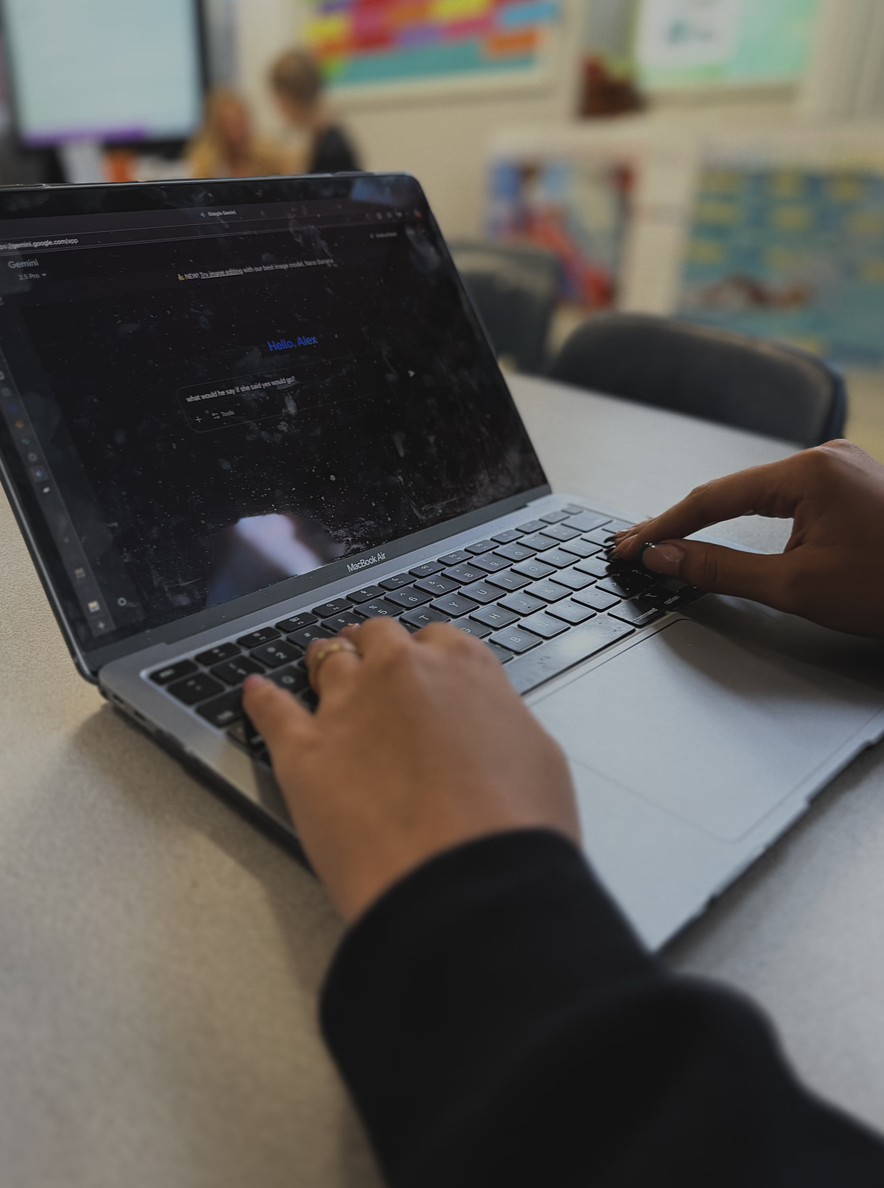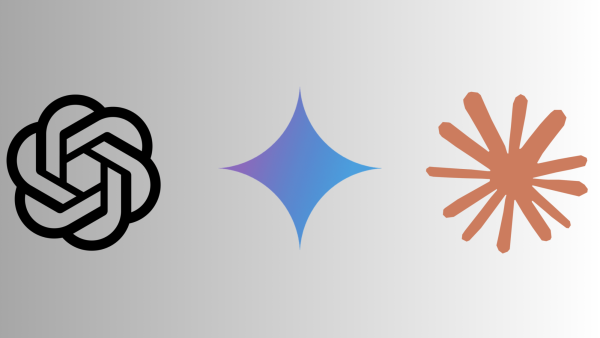Artificial intelligence has revolutionized how we use technology. It is being heralded as the second wave of the dot-com boom from the 2000s, but this time, the impact feels even bigger. Today, AI is embedded in nearly everything—phones, computers, watches and even screen protectors. As society increasingly relies on AI, this raises a critical question: Is AI a helpful tool, or is it replacing us?
AI in Education
Many students across all levels of education are using AI to assist with assignments, with some relying on it entirely for their work. Since the release of ChatGPT in 2023, writing scores have been on the decline. According to the Florida Department of Education (FLDOE), “Writing B.E.S.T. scores have gone down by five percent since 2023.” Educators suggest that students who use AI to complete their papers are losing critical writing skills.
However, some students are using AI responsibly as a study tool rather than a shortcut.
“It’s very helpful to study because I give it a topic and ask it to make flashcards and quizzes on it,” said Tommy Mena, a sophomore. “I think it’s a lot more efficient because it takes less time to make stuff and leaves more time for you to actually study.”
AI in the Workforce
AI is also transforming the workplace. It allows for faster completion of tasks with fewer employees, enabling companies to adopt cost-cutting models that ultimately benefit consumers.
For example, in marketing, AI tools are used to automate tasks that would previously take hours or days. Hiring a voice actor for a single project might cost more than $100, but AI-generated voices can be created in seconds for $15 per month with unlimited usage. These cost savings are then passed on to clients, reducing their expenses for marketing services.
Ethical and Industry Concerns
One of the primary concerns surrounding AI is its ability to replace humans. AI-powered video generation tools, such as Gemini Veo Three and Sora Two Pro, are already capable of creating videos that closely mimic real-life footage. While the technology isn’t perfect, it is improving rapidly and may soon produce studio-quality films indistinguishable from those created by humans.
This raises questions about industries like filmmaking. What will directors and producers do when AI can create feature-length films autonomously?
To address these concerns, regulations may be necessary to ensure transparency. Social media platforms like TikTok and Instagram already use watermarks to label AI-generated content. Similar measures could help consumers understand when AI has been used and make informed decisions about the content they engage with.
The Need for Regulation
AI is a complex and powerful tool. When used appropriately, it can be invaluable. However, over-reliance on AI can lead to laziness and a decline in critical thinking skills, particularly among students.
To prevent humanity from becoming obsolete, regulations should be implemented to ensure that AI is used responsibly. This balance would allow people who genuinely need AI to benefit from it without complete dependence on technology.


